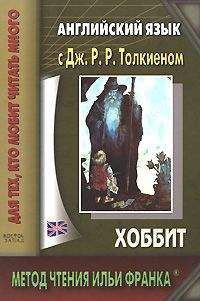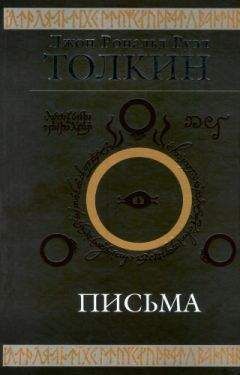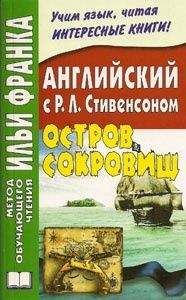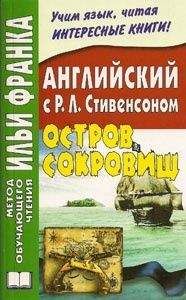Then one of the ponies took fright at nothing and bolted. He got into the river before they could catch him; and before they could get him out again, Fili and Kili were nearly drowned, and all the baggage that he carried was washed away off him. Of course it was mostly food, and there was mighty little left for supper, and less for breakfast.
There they all sat glum and wet and muttering (и вот, все они сидели мрачные и мокрые и ворчащие), while Oin and Gloin went on trying to light the fire (пока Ойн и Глойн продолжали пытаться развести огонь), and quarrelling about it (и ссорились из-за этого). Bilbo was sadly reflecting (Бильбо печально размышлял) that adventures are not all pony-rides in May-sunshine (что приключения — это не только скачки на пони в солнечном свете мая), when Balin (когда Балин), who was always their look-out man (который всегда был их впередсмотрящим; look-out — бдительность, наблюдение), said: “There’s a light over there (там свет)!” There was a hill some way off (на некотором расстоянии был холм) with trees on it (покрытый деревьями: «с деревьями на нем»), pretty thick in parts (местами довольно густо; part — часть). Out of the dark mass of the trees (среди темной массы деревьев) they could now see a light shining (теперь они смогли увидеть светящийся огонек), a reddish comfortable — looking light (красноватый, выглядящий уютно огонек), as it might be a fire or torches twinkling (это мог бы быть костер или мерцающие факелы). When they had looked at it for some while (когда они посмотрели на него некоторое время), they fell to arguing (они начали спорить; to fall (fell, fallen) to doing smth. — браться, приниматься за что-либо). Some said “no” (некоторые сказали "нет") and some said “yes” (и некоторые сказали "да") Some said they could but go and see (некоторые говорили, что они могли бы, во всяком случае, пойти и посмотреть), and anything was better than little supper (и что все что угодно было лучше, чем скудный ужин; little-less-the least — мало — меньший — наименьший), less breakfast (еще более скудный завтрак), and wet clothes all the night (и сырая одежда на всю ночь). Others said (другие сказали): “These parts are none too well known (эти края не очень-то хорошо известны), and are too near the mountains (и слишком уж близки к горам). Travellers seldom come this way now (путешественники теперь редко пользуются: «ездят по» этим путем). The old maps are no use (старые карты бесполезны): things have changed for the worse (все изменилось к худшему) and the road is unguarded (да и дорога не охраняется). They have seldom even heard of the king (они вряд ли даже слышали о короле; seldom — редко, нечасто) round here (в этой округе), and the less inquisitive you are (и чем меньше ты любопытствуешь) as you go along (когда ты в пути), the less trouble you are likely to find (тем меньше у тебя вероятность встретиться с проблемами; trouble—беспокойство, волнение, тревога; источник неприятностей). ”
quarrelling [ˈkwɔrǝlɪŋ] look-out [ˈlʋkaʋt] reddish [ˈredɪʃ] torch [tɔ: tʃ] unguarded [ʌnˈɡɑ: dɪd]
There they all sat glum and wet and muttering, while Oin and Gloin went on trying to light the fire, and quarrelling about it. Bilbo was sadly reflecting that adventures are not all pony-rides in May-sunshine, when Balin, who was always their look-out man, said: “There’s a light over there!” There was a hill some way off with trees on it, pretty thick in parts. Out of the dark mass of the trees they could now see a light shining, a reddish comfortable-looking light, as it might be a fire or torches twinkling. When they had looked at it for some while, they fell to arguing. Some said “no” and some said “yes. ” Some said they could but go and see, and anything was better than little supper, less breakfast, and wet clothes all the night. Others said: “These parts are none too well known, and are too near the mountains. Travellers seldom come this way now. The old maps are no use: things have changed for the worse and the road is unguarded. They have seldom even heard of the king round here, and the less inquisitive you are as you go along, the less trouble you are likely to find. ”
Some said (кто-то сказал):
“After all there are fourteen of us (в конце-то концов, нас же четырнадцать). ” Others said (другие говорили): “Where has Gandalf got to (куда это подевался Гэндальф)?” This remark was repeated by everybody (это замечание было повторено каждым). Then the rain began to pour down (затем дождь начал лить) worse than ever (еще хуже, чем когда бы то ни было), and Oin and Gloin began to fight (и Ойн с Глойном начали драться). That settled it (это и решило дело; to settle — поселиться; привести в порядок; урегулировать, разрешить /спор, конфликт/). “After all we have got a burglar with us (в конце-то концов, с нами же взломщик), ” they said (сказали они); and so they made off (и тогда они отправились), leading their ponies (ведя своих пони) (with all due and proper caution (со всеми должными и надлежащими предосторожностями)) in the direction of the light (в направлении огонька). They came to the hill (они подошли к холму) and were soon in the wood (и скоро оказались в лесу). Up the hill they went (они пошли вверх по холму); but there was no proper path to be seen (но никакой приличной тропинки видно не было), such as might lead to a house or a farm (такой, какая бы могла вести к дому или к ферме); and do what they could (и делая все возможное/что бы они ни делали /чтобы идти тихо/: «все что они могли») they made a deal of rustling (они сотворили много шорохов) and crackling (треска) and creaking (и скрипов) (and a good deal of grumbling and drafting (а также огромное количество ворчания и приказаний /друг другу/)), as they went through the trees (пока они шли сквозь деревья) in the pitch dark (в кромешной тьме; pitch — зд. смола, битум).
repeat [rɪˈpi: t] caution [ˈkɔ: ʃ (ǝ) n] rustle [rʌs (ǝ) l] creaking [ˈkri: kɪŋ]
Some said:
“After all there are fourteen of us. ” Others said: “Where has Gandalf got to?” This remark was repeated by everybody. Then the rain began to pour down worse than ever, and Oin and Gloin began to fight. That settled it. “After all we have got a burglar with us, ” they said; and so they made off, leading their ponies (with all due and proper caution) in the direction of the light. They came to the hill and were soon in the wood. Up the hill they went; but there was no proper path to be seen, such as might lead to a house or a farm; and do what they could they made a deal of rustling and crackling and creaking (and a good deal of grumbling and drafting), as they went through the trees in the pitch dark.
Suddenly the red light shone out very bright (внезапно красный огонек засветил очень ярко) through the tree-trunks (сквозь стволы деревьев) not far ahead (недалеко впереди).
“Now it is the burglar’s turn (теперь пришла очередь взломщика; turn — поворот, оборот, смена), ” they said (сказали они), meaning Bilbo (имея в виду Бильбо). “You must go on (вы должны пойти дальше) and find out all about that light (и выяснить все об этом огоньке), and what it is for (и для чего он), and if all is perfectly safe and canny (и все ли там безопасно и спокойно/уютно), ” said Thorin to the hobbit (сказал Торин хоббиту). “Now scuttle off (ну же, поспешите), and come back quick (и возвращайтесь поскорей), if all is well (если все в порядке). If not, come back if you can (если же нет, то возвращайтесь, если сможете)! It you can’t (если не сможете), hoot twice like a barn-owl (то ухните два раза, как сипуха; owl — сова, сыч, филин; barn — амбар, скотный двор) and once like a screech-owl (и один раз, как ушастая сова; screech — хриплый, визгливый), and we will do what we can (и мы сделаем все, что сможем). ”
through [Ɵru: ] scuttle [ˈskʌtl] barn-owl [ˈbɑ: naʋl] screech owl [ˈskri: tʃaʋl]
Suddenly the red light shone out very bright through the tree-trunks not far ahead.
“Now it is the burglar’s turn, ” they said, meaning Bilbo. “You must go on and find out all about that light, and what it is for, and if all is perfectly safe and canny, ” said Thorin to the hobbit. “Now scuttle off, and come back quick, if all is well. If not, come back if you can! It you can’t, hoot twice like a barn — owl and once like a screech-owl, and we will do what we can. ”
Off Bilbo had to go (Бильбо пришлось отправляться), before he could explain (до того, как он смог объяснить) that he could not hoot even once (что он не сможет ухнуть даже один раз) like any kind of owl (как хоть какая-нибудь сова; kind — сорт, класс, разряд) any more (не больше чем) than fly like a bat (/не сможет/ полететь, как летучая мышь). But at any rate (но, в любом случае; rate — оценка имущества; суждение, мнение, оценка; норма; размер) hobbits can move quietly in woods (хоббиты умеют двигаться тихо в лесах), absolutely quietly (абсолютно бесшумно). They take a pride in it (они гордятся этим: «берут гордость в этом»), and Bilbo had sniffed more than once (и Бильбо фыркал не раз: «больше чем один раз») at what he called (над тем, что он называл) “all this dwarvish racket (весь этот малорослый: «гномов» грохот), ” as they went along (пока они шли), though I don’t suppose you or I (хотя, как я полагаю, ни вы, ни я) would notice anything at all (не заметили бы ничего) on a windy night (в такую ветреную ночь), not if the whole cavalcade (нет, даже если бы целая кавалькада) had passed two feet off (проехала бы в двух шагах /от нас/). As for Bilbo walking primly towards the red light (что же до того, как Бильбо отправился прямиком по направлению к красному огню; to walk — ходить, идти пешком), I don’t suppose even a weasel (я не предполагаю, что даже горностай; weasel — ласка, горностай) would have stirred a whisker at it (повел бы усом на это; to stir — шевелить; whisker — борода, волос бороды; whiskers — бакенбарды, баки). So, naturally, he got right up to the fire (и тогда, что совершенно естественно, он подобрался точно к самому костру) — for fire it was (так как это был костер) without disturbing anyone (не потревожив никого). And this is what he saw (и вот что он увидел). Three very large persons (три очень огромных существа) sitting round (сидели вокруг) a very large fire of beech-logs (очень огромного костра из буковых бревен). They were toasting mutton (они подрумянивали на костре баранину) on long spits of wood (на длинных вертелах из дерева), and licking the gravy off their fingers (и слизывали выделявшийся /при жарке из мяса/ сок со своих пальцев). There was a fine toothsome smell (запах был очень аппетитный: «прекрасный вкусный»; toothsome — приятный на вкус). Also there was a barrel of good drink at hand (также был /у них/ бочонок хорошего напитка под рукой), and they were drinking out of jugs (и они пили его из кружек). But they were trolls (но они были троллями).





